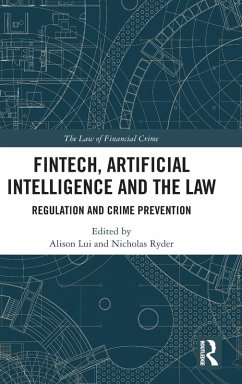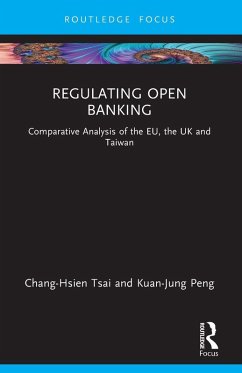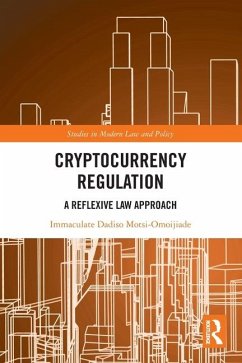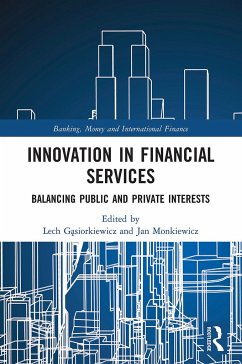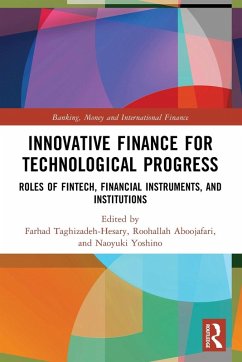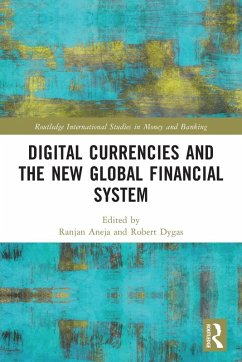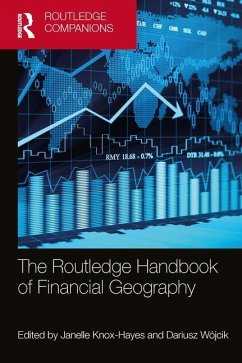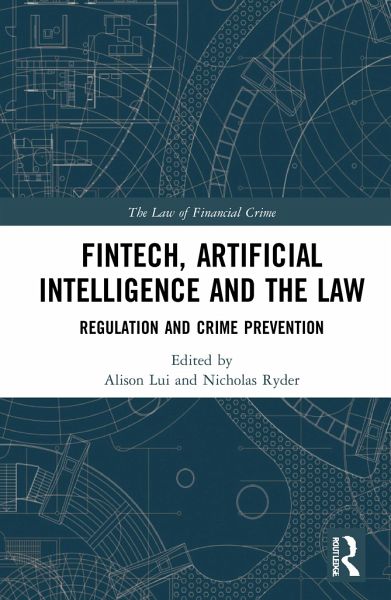
FinTech, Artificial Intelligence and the Law
Regulation and Crime Prevention
Herausgegeben: Lui, Alison; Ryder, Nicholas
Versandkostenfrei!
Versandfertig in 6-10 Tagen
43,99 €
inkl. MwSt.

PAYBACK Punkte
22 °P sammeln!
This collection critically explores the use of financial technology (FinTech) and artificial intelligence (AI) in the financial sector and discusses effective regulation and the prevention of crime.Focusing on crypto-assets, InsureTech and the digitisation of financial dispute resolution, the book examines the strategic and ethical aspects of incorporating AI into the financial sector. The volume adopts a comparative legal approach to: critically evaluate the strategic and ethical benefits and challenges of AI in the financial sector; critically analyse the role, values and challenges of FinTe...
This collection critically explores the use of financial technology (FinTech) and artificial intelligence (AI) in the financial sector and discusses effective regulation and the prevention of crime.
Focusing on crypto-assets, InsureTech and the digitisation of financial dispute resolution, the book examines the strategic and ethical aspects of incorporating AI into the financial sector. The volume adopts a comparative legal approach to: critically evaluate the strategic and ethical benefits and challenges of AI in the financial sector; critically analyse the role, values and challenges of FinTech in society; make recommendations on protecting vulnerable customers without restricting financial innovation; and to make recommendations on effective regulation and prevention of crime in these areas.
The book will be of interest to teachers and students of banking and financial regulation related modules, researchers in computer science, corporate governance, and business and economics. It will also be a valuable resource for policy makers including government departments, law enforcement agencies, financial regulatory agencies, people employed within the financial services sector, and professional services such as law, and technology.
Focusing on crypto-assets, InsureTech and the digitisation of financial dispute resolution, the book examines the strategic and ethical aspects of incorporating AI into the financial sector. The volume adopts a comparative legal approach to: critically evaluate the strategic and ethical benefits and challenges of AI in the financial sector; critically analyse the role, values and challenges of FinTech in society; make recommendations on protecting vulnerable customers without restricting financial innovation; and to make recommendations on effective regulation and prevention of crime in these areas.
The book will be of interest to teachers and students of banking and financial regulation related modules, researchers in computer science, corporate governance, and business and economics. It will also be a valuable resource for policy makers including government departments, law enforcement agencies, financial regulatory agencies, people employed within the financial services sector, and professional services such as law, and technology.





